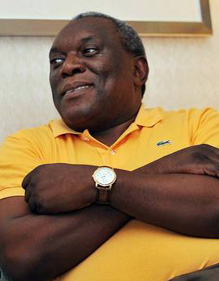
Minister Siyabonga Cwele is our zero of the week for taking this intransigent stance on a piece of legislation that is a threat to our democracy. It could seriously deter whistle-blowing, and the growth of a culture of accountability in government. This, of course, would have a devastating impact on surging levels of corruption, through which only a few are enriched while millions are deprived of their constitutional and their human rights.
Cwele was briefing the National Council of Provinces ad-hoc committee on the Protection of State Information Bill on Wednesday, October 31, which is processing the proposed law.
The Protection of State Information Bill, to give it its full name, was introduced by Cwele two years ago. It caused a nationwide uproar and was condemned by critics and civil society organisations, who asserted that it was taking the country back to apartheid-era state secrecy. After widespread criticism over clause 1(4), which states that where a conflict arises between the new official secrets act and the Promotion of Access to Information Act (PAIA), the former must prevail, the ANC last month heeded the call from civil society to delete it. The PAIA allows for the disclosure of state secrets where public interest outweighs security concerns.
However, Cwele went to work to derail this achievement when he appealed to parliament that the secrecy bill should override the PAIA when the two were in conflict. He said the PAIA could not be the final word on classified information. His intention was not to trump the PAIA or make it ineffective, the minister said, but rather it was to protect sensitive information.
He also suggested that all police and soldiers in the country should be given the power to classify secrets. The proposal by the National Council of Provinces (NCOP) committee that ordinary members of the South African Police Service and the South African National Defence Force should not be able to classify information, was problematic, he said.
In his submission to parliament this week, Cwele further objected to a sub-clause that sought to widen the protection for whistle-blowers, and called on MPs to re-introduce a five-year prison term for disclosing classified information.
Cwele’s views have been rejected by rights groups such as the Right2Know campaign, which has pointed out that the PAIA is prescribed by the Constitution and should therefore remain the supreme information law.
Earlier this year, Corruption Watch joined other civil society organisations in raising concerns and spreading awareness about the bill. The organisation warned that the bill as it stood would impede the fight against corruption.
The NCOP committee has been granted another extension to its deadline. It has until the end of November to make amendments to the bill. It will then have to be referred back to the National Assembly to approve the changes.
Excerpt
The minister of state security is the zero of the week for his inflexible stance on the secrecy bill and attempts to stop progress in its tracks. His way will allow corruption to flourish.
Image
File Upload

